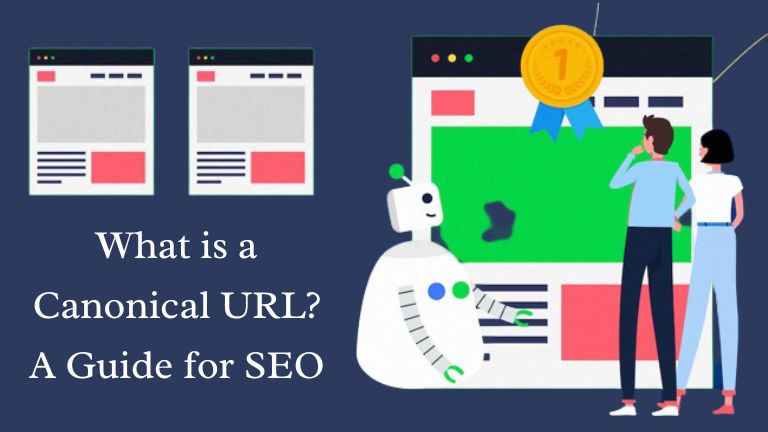
Every website needs SEO, and online stores are no different. Canonical URLs are essential for preventing search engine penalties and ensuring that the SEO of your client’s website is effective. They help identify which URLs contain identical or very similar content and ensure that search engines aren’t confused when multiple links point to the same webpage or piece of content.
This article explains the specifics you need to know How Canonical Tags Can Be Helpful For SEO so that your client’s online store is on the path to being fully search engine optimized, regardless of whether you are already acquainted with canonical URLs or you have never heard the term rel=”canonical.” Let’s get started.
What Exactly Is A Canonical?
If there is one thing you take away from this guidance, let it be this: First and probably most important, before we even describe a canonical tag: Canonical tags are not imperatives in the same way that the Robots.txt file is.
The implication is that while Google considers canonical tags to be a strong hint, it ultimately weighs a variety of signals before making a decision on whether to honor them.
Let’s discuss the golden rule now that it has been cleared up.
In order to inform search engines where as URL is the master variant of a page, the canonical tag was introduced in 2009 and can be found in the software of HTML documents. This can be used to tell Google which page variations to index.
The “canonical” is a little different from the “canonical” tag, which is the HTML tag itself on a page.
The canonical variations can be categorized in two ways that are both straightforward: by user declaration and by Google declaration.
Canonical declared by user: This is pretty self – explanatory; it is the canonical identified by the canonical tag.
The URL that Google has designated as being the canonical version is listed here as “Google-declared canonical.”
To view both of the aforementioned canonical types, use Google Search Console’s URL Inspection Tool.
They are compatible in a perfect world, but what happens if they are not? We’ll go over it further later.
Also read about What is SEO and its Importance
A Canonical URL’s Selection Process by Google
Similar pages will probably be found during this crawl, and Google will likely select one of them as the canonical version after determining that it best captures the message users are supposed to understand from the page.
Since a canonical tag isn’t a directive, as we mentioned above, Google also takes other signals into account, so be consistent!
Other factors that Google takes into account with a canonical tag include internal links and backlinks, to name a few.
When some parameter=xyz is used, there is a good chance that Google will disregard your canonical Meta description and choose a URL with a request parameter instead. Because Google crawls RSS extremely aggressively, ensure that your proclaimed canonical fits to URLs in your RSS feed.
Although it is a tracking parameter, there is a chance that Search engine will choose a canonical with both the query string e /?source=feed if you add URLs to your RSS reader with variables like /?source=feed in order to monitor traffic to your website from RSS subscribers. Google is aware of this possibility.
To track clicks on your RSS feed URLs, you can use link-shortening services or RSS services such as Feed Press.
Search engines will also make decisions based on the user experience. If you have a computer version of your website, Google might very well serve the digital app to a user on their mobile device.
The Benefits of Canonical Tags for SEO
Both websites with a small number of pages and those with millions of pages require canonical tags.
They are essential for a number of reasons.
- You Decide On the Canonical Tag SEO
You have the chance to let Google know which variant of a page from your website is the best one to offer visitors by using the canonical tag.
- Content Duplication
One of those topics, duplicate content, has a bad reputation and appears straightforward at first glance but is actually more complex than its name suggests.
You might be thinking, “I don’t have any duplicate pages,” but let’s take a quick look at what “duplicate” means according to Google Search Central Documentary evidence before you make that claim.
- Link Signal Consolidation
In order to increase the value of a URL, canonicals direct search engines to combine the different data they have for several related pages into a single URL.
- Article Syndication
Make sure your version of the content appears in the search engine results if your website syndicates content for other websites to publish or if partners are using it.
As Its Primary Source, Google Uses Canonicals
The quality and content of a page are assessed by Google using the canonical. Canonical pages are crawled more often than non-canonical pages.
Also read about tips to choose SEO packages for business
